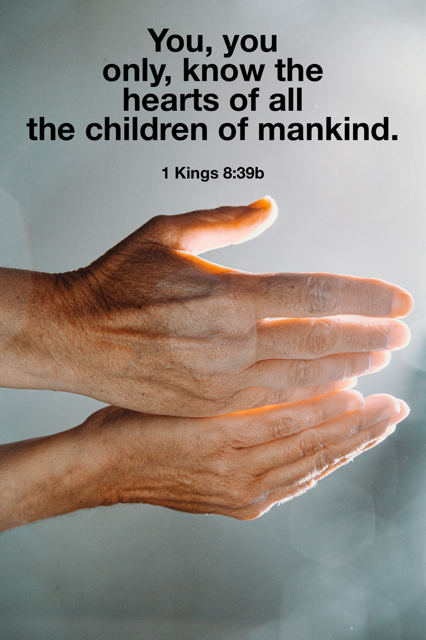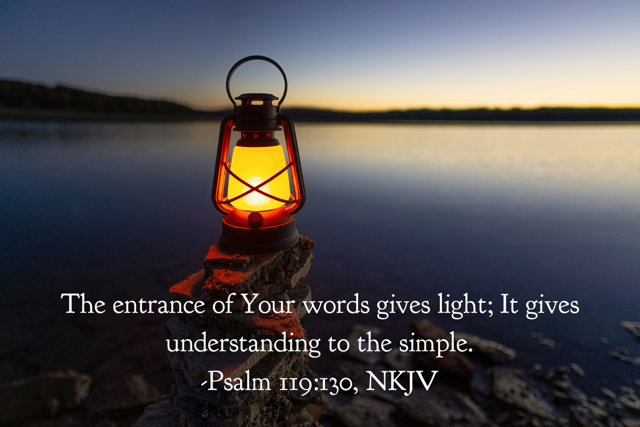God has given us many pictures to help us understand how we are related to Him and how He cares for us.
- Father/children: “See what kind of love the Father has given to us, that we should be called children of God; and so we are” (1 John 3:1).
- Bridegroom/bride: “And I saw the holy city, new Jerusalem, coming down out of heaven from God, prepared as a bride adorned for her husband” (Revelation 21:2).
- Shepherd/sheep: “I am the good shepherd. The good shepherd lays down his life for the sheep” (John 10:11).
- Savior/sinners: “And we have seen and testify that the Father has sent his Son to be the Savior of the world (1 John 4:14).
- King/subjects: “He has delivered us from the domain of darkness and transferred us to the kingdom of his beloved Son” (Colossians 1:13).
- Teacher/disciples: “You call me Teacher and Lord, and you are right, for so I am” (John 13:13).
- Master/servants: “ For I have given you an example, that you also should do just as I have done to you. Truly, truly, I say to you, a servant is not greater than his master, nor is a messenger greater than the one who sent him” (John 13:15-16).
- Relatives: “For whoever does the will of God, he is my brother and sister and mother” (Mark 3:35).
- Friends: “ You are my friends if you do what I command you. No longer do I call you servants, for the servant does not know what his master is doing; but I have called you friends, for all that I have heard from my Father I have made known to you” (John 15:14-15).
Many passages could be shared for some of these categories: I tried to choose one representative verse for each.
Some of these apply specifically to Christ (Bridegroom), some to God the Father, some to both.
Some of these might seem to contradict each other. But none are meant to be exclusive of the others: each relationship has some facets of it that help us understand our relationship to God.
One we don’t often hear about is when God compares His love to a mother’s.
God is a spirit and thus is neither male nor female. The Bible speaks of Him with masculine pronouns. But we are made in His image, so it makes sense that He reflected aspects of His love in an earthly mother’s. Here are a few:
God comforts us like a mother comforts her child.
“For thus says the Lord: “Behold, I will extend peace to her like a river, and the glory of the nations like an overflowing stream; and you shall nurse, you shall be carried upon her hip, and bounced upon her knees. As one whom his mother comforts, so I will comfort you; you shall be comforted in Jerusalem” (Isaiah 66:12-13).
God cares for us like a parent.
“Listen to me, descendants of Jacob, all who are left of my people. I have cared for you from the time you were born. I am your God and will take care of you until you are old and your hair is gray. I made you and will care for you; I will give you help and rescue you” (Isaiah 46:3-4). Although mothers aren’t mentioned specifically here, they do care for their children.
God draws us with love.
“I taught Ephraim to walk, taking them by their arms; But they did not know that I healed them.I drew them with gentle cords, with bands of love, And I was to them as those who take the yoke from their neck. I stooped and fed them” (Hosea 11:3-4, NKJV).
God guides and bears us.
“Like an eagle that stirs up its nest, that flutters over its young, spreading out its wings, catching them, bearing them on its pinions, the Lord alone guided him” (Deuteronomy. 32:11-12).
God protects us.
Several times, Scripture uses the image of a hen gathering its chicks under its wings.
“Be merciful to me, O God, be merciful to me, or in you my soul takes refuge; in the shadow of your wings I will take refuge until the destroying storms pass by” (Psalm 57:1).
“The Lord repay you for what you have done, and a full reward be given you by the Lord, the God of Israel, under whose wings you have come to take refuge!” (Ruth 2:12).
“Keep me as the apple of your eye; hide me in the shadow of your wings” (Psalm 17:8).
“O Jerusalem, Jerusalem, the city that kills the prophets and stones those who are sent to it! How often would I have gathered your children together as a hen gathers her brood under her wings, and you were not willing!” (Matthew 23:37).
God yearns for us even in discipline.
“Is Ephraim my dear son? Is he my darling child? For as often as I speak against him, I do remember him still. Therefore my heart yearns for him; I will surely have mercy on him,
declares the Lord” (Jeremiah 31:20).
God will never forget or forsake us.
“But God’s people say, ‘The Lord has forsaken me, the Lord has forgotten me.’ Can a mother forget the baby she is nursing and have no compassion on the child she has borne? Though she may forget, I will not forget you!” (Isaiah 49:14-15).
Commenting on the Isaiah 66 passage, Matthew Henry says, “As one whom his mother comforts, when he is sick or sore, or upon any account in sorrow, so will I comfort you; not only with the rational arguments which a prudent father uses, but with the tender affections and compassions of a loving mother, that bemoans her afflicted child when it has fallen and hurt itself, that she may quiet it and make it easy, or endeavours to pacify it after she has chidden it and fallen out with it.”
Perhaps you have not known the warmth and comfort of a mother’s love. Or perhaps your mother was not a good example of sacrificial love. David wrote, “For my father and my mother have forsaken me, but the LORD will take me in” Psalm 27:10. Jesus said, “I will not leave you as orphans; I will come to you” (John 14:18).
Even if we haven’t had good parental examples, we know what a good parent is supposed to look like. No earthly parent is perfect. But God gave us a picture of parents’ love to give us some glimmer of what His love is like.
His love is perfect but patient, holy yet compassionate, correcting but gentle, kind and understanding. Let His love draw you to Himself.
My mother’s gentle love, my mother’s gentle love
Has taught me of God’s tender care, and turned my eyes above.
I’ll bless her all my days for all her gentle ways.
Oh, how I thank my Lord above for my mother’s gentle love.
— Ron Hamilton
(I often link up with some of these bloggers.)




















